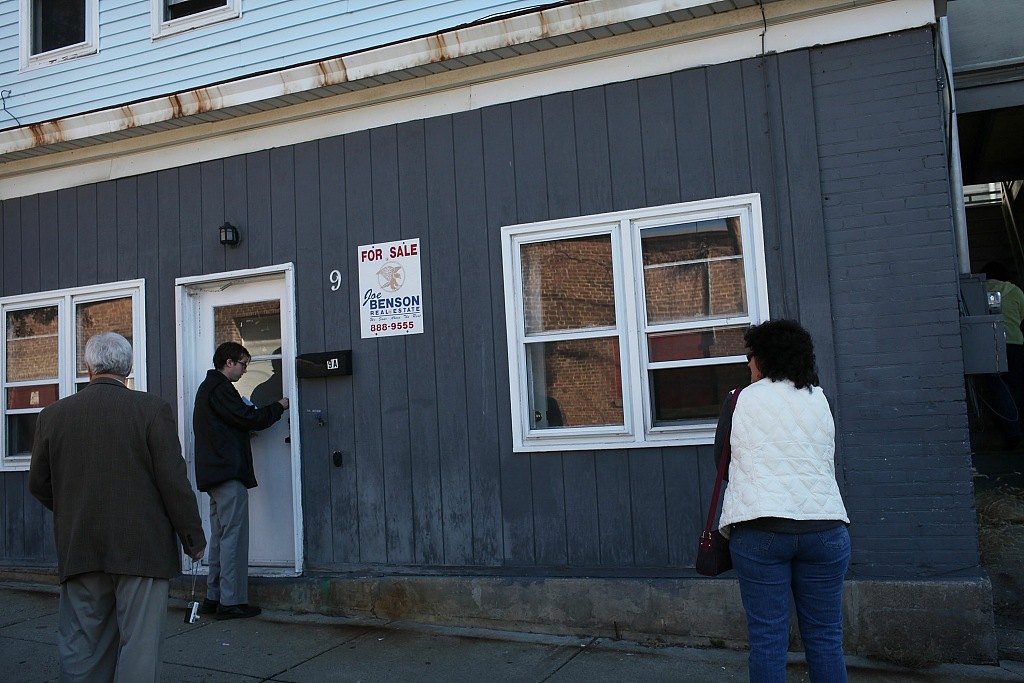NEW YORK, Sept. 10 (Xinhua) -- Uncertainty over the U.S.-initiated trade friction with China has led to a cool-down of the U.S. real estate market, particularly where Chinese and American Chinese customers converge, industry insiders have said.

File photo: VCG
"Confidence is not as strong as before. The trade friction with China makes people wait and see, balking at signing the contract and paying the bill," Jennifer Chan, a selling agent at real estate services company E Realty International Corp., told Xinhua.
DEALS HARDER TO REACH
"My customers used to consider for a very short of time before they decided to buy their favorite houses. They would even outbid my offer. But now they hesitate for long, bargain a lot, deflate my offer by 10 to 20 percent, and (are) still unwilling to hammer the deal," said Chan, who has been immersed in the market for over 20 years.
"Rounds of tariffs levied by the U.S. government on Chinese commodities make the purchasers think that the prolonged disputes won't end soon ... so they just zip up their purses to wait the uncertainty out," she added.
Rose Lu, New York general manager of Atlanta-based developer and sales company McKinley Homes, told Xinhua that the U.S. housing market is now in a trench, where buyers tend to believe that the price has nowhere to climb but to slide down from the high point.
"People are wise enough not to buy in. They would rather wait for its fallback," Lu said, adding sales will become even more sluggish as the current trench hovers much longer than usual due to the trade friction.
"Judging from the U.S. government's action, they think that the trade friction is to stay, which means that the uncertainty is also to stay. As we know, uncertainty is the deadliest enemy to market and business," said Lu.
"We're working with, for example, a shoe manufacturer who is set to buy a property and kind of puts everything on hold because the trade war has a negative impact on his business, and he's waiting to see the resolution before moving forward," said Brian Weld, executive managing director at international commercial real estate services company Cushman & Wakefield.
BUILDING COSTS RISE
Serving a company prioritizing its developer's role, Lu also felt the pinch and pressure that the accumulated tariffs have brought to house construction. Many building materials are imported from China, and the bloated tariffs against them have already increased construction costs by at least 1 percent.
"We usually share the extra burden with our subcontractors and suppliers. We are on the same chain. We can't see them sink. But, to be frank, all the new burden will eventually go to home buyers. We will tell them: you pay more, for the government levy more tax on Chinese materials," Lu said.
For Xu Bo, principal of New York-based Xu Consulting Engineering P.C., building costs have increased by at least 10 percent due to the trade friction.
"Some developers are even afraid of starting new projects in Manhattan, but turn to neighboring areas or tier two and three cities like Atlanta for new projects," he told Xinhua.
Prices of many luxury properties have already dropped substantially, Xu said, adding property prices may fall by 10-20 percent in the upcoming downturn.
"Many people just wait and see amid uncertainties like the U.S. general election and the U.S.-China trade friction which will inevitably affect their decisions on investment or purchase of property," he added.
FIGURES TELL MORE
Analyses by experts and institutions also showed that real estate prices will fall.
The S&P/Case-Shiller 20-City Composite Home Price Index, which tracks changes in the price of residential real estate in 20 major U.S. metropolitan regions, posted a 2.1-percent year-on-year gain in June, down for the 15th consecutive month. The report added that adjusted for inflation, prices were already flat.
"It would suggest declining home prices in the near future," Nobel laureate Robert Shiller told Bloomberg Television Thursday. "I wouldn't be at all surprised if house prices started falling."
According to a recent report by Cushman & Wakefield, property sales in NYC, home to the largest ethnic Chinese population outside Asia, totaled 23.5 billion U.S. dollars in the first half of 2019, down by 4.5 percent year on year.
The United States and Britain once accounted for a majority of Chinese outbound property investment in 2015, but their share fell to less than 15 percent in 2019 due to uncertainty over the U.S.-China trade friction and the impact of Brexit, it said.


